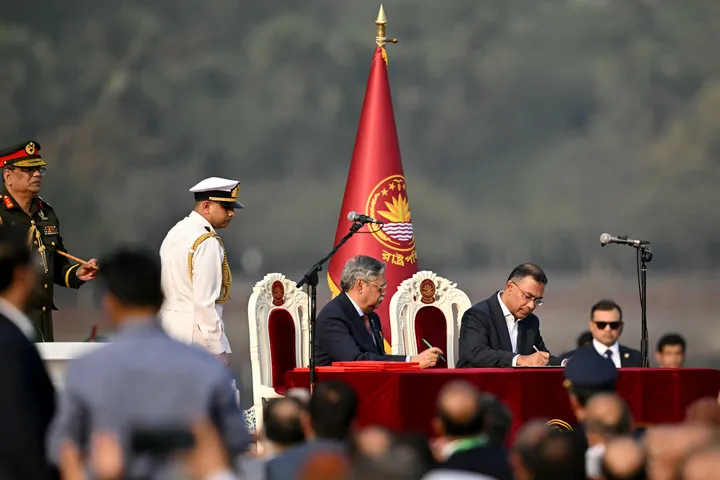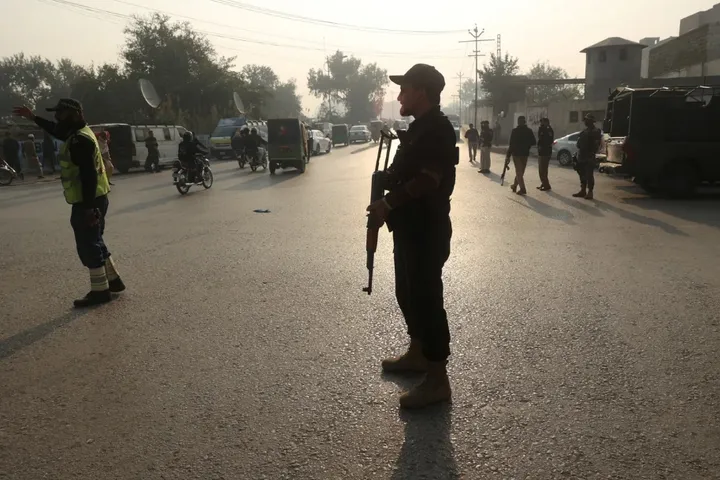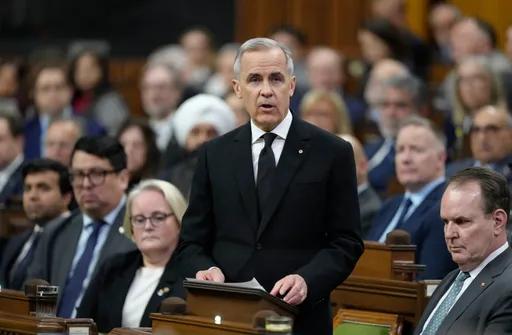A delay in the delivery of Covid-19 vaccines under the COVAX facility has forced Pakistan to explore other options including commercial import of the jabs, which a large part of its population won’t be able to afford.
“At present (we are) struggling to keep the vaccination drive going because GAVI has not been able to give a single dose to Pakistan,” Aamir Ashraf Khawaja, the top official at the health ministry, tells TRT World.
The Geneva-based GAVI, an international organisation that seeks to promote equitable distribution of vaccines, along with the World Health Organisation (WHO), is co-ordinating the free supply of Covid-19 vaccines to developing and poor nations.
GAVI had earlier indicated sending a consignment to Islamabad by early March but it didn’t come through, says Khawaja. “Because of this gap, we are forced to buy whatever is available at the eleventh hour.”
COVAX, the only vaccine affordable for people in many poor countries, has so far shipped 31 million doses to 57 countries.
Altogether, some 142 nations are looking to receive 237 million doses under the COVAX facility through May. Pakistan was expected to get 14 million doses — the highest for any country in the group.
But there has been a shortage of Covishield, a vaccine developed by the anglo-Swedish pharma major AstraZeneca and which COVAX is distributing.
The Covishield shots are being manufactured by Serum Institute of India (SII) — the world’s largest vaccine maker — at its massive production facilities in Pune.
SII has diverted much of its supply to meet local demand in India where the government is dealing with second virus surge. India has already recorded 160,000 deaths from the virus, while 2.7 million others have been infected.
“SII has pledged that, alongside supplying India, it will prioritise the COVAX multilateral solution for equitable distribution. COVAX is in talks with the Government of India with a view to ensuring deliveries as quickly as possible,” Evan O’Connell, a GAVI spokesperson, tells TRT World in an emailed response.
AstraZeneca is facing a crisis in the US and European Union where supply bottlenecks have hindered its delivery. A series of reports about flaws in its vaccine trial data have raised safety concerns.
But countries such as Pakistan, which have fallen behind in the vaccination drive, are clamouring to get their hands on whatever supply is available on the market.
The government has faced criticism over its slow response. An amount of $150 million was set aside to buy vaccines but it is yet to be utilised.
“I think the government was not interested in spending its own money. It relied on donations and then hoped vaccines from COVAX would start to come and the gap would be filled in that way,” says Waqar Bhatii, a Karachi-based journalist.
When money talks
Earlier in March, Pakistan allowed the private sector to import Covid-19 vaccine, becoming the first country in the world to do so.
But commercial sales, which are aimed at supplementing official drive, have hit a roadblock over the matter of how much a customer is supposed to pay for a shot.
A private medical logistics company, Ali Gohar, said it received on March 17 the first 50,000-dose consignment of Russia’s Sputnik V vaccine.
However, the planned sale at private hospitals and clinics has stalled after Islamabad wavered over the price.
“Initially the government had proposed that it will let the market decide the price. But then fixed what’s known as the maximum retail price at around Rs8,5000 ($55) for the two-dose vaccine course,” says Waqar Bhatti, the journalist, who has closely covered the story.
“The company says it was promised a 40 percent margin over the landed cost. That means it’s asking for between Rs12,000 and Rs13,000 (around $80) for the two doses.”
Ali Gohar has threatened to re-export the vaccines to another country if the government delays notification of a suitable price.
A company representative didn’t respond to multiple requests for comment.
“The thing is that there’s a sizable part of the population that can afford to pay and wants to get the vaccines at some private institution without any hassle,” says Bhatti.
“Similarly some large corporations are looking to buy the vaccine from the market for their employees.”
Commercial sale of the imported Sputnik V jabs doesn’t mean people can buy them off the shelves from stores as the government has designated a few hospitals and labs where it can be administered.
Thailand and a few other countries have also considered allowing commercial import of Covid-19 vaccines.
Pakistan has recorded more than 14,000 Covid-19 related deaths up till March 26, according to Johns Hopkins University.
Vaccine rollout, which began six weeks ago, like many other countries, has been slow and so far only 600,000 (o.27 percent) people have received the shots in the South Asian nation of 220 million people.
So far, Prime Minister Imran Khan’s government has relied on vaccine donations from China to manage its vaccination drive, drawing criticism from experts who say authorities have dragged feet in responding to the impending crisis.
Khan and his wife have contracted the Covid-19 virus and are in quarantine these days.
“We rely on the private sector for everything. From diagnostics to labs and hospitals — you name it and the private sector is better than public health care facilities,” says Dr Altaf Ahmed, a Lahore-based epidemiologist.
“And it’s no surprise because we spent a meagre 2 percent of the budget on healthcare.”
But, he says, more than one-third of Pakistan’s population lives in rural areas where an individual's monthly income hardly exceeds Rs3,000 ($20).
“My friends and family who live in cities and have cars are desperate to get these private vaccine shots. But think about all the other people who might not even know what coronavirus really is.”
In absence of government-run testing facilities, private hospitals and labs have stepped in to tap the market, often charging exorbitant amounts to run Covid-19 tests, he says.
“I have seen people take away their patients because they don’t have Rs2,000 ($13) to buy antibiotics. So no, this commercial sale of Covid-19 vaccine is not for the majority — who are poor.”























